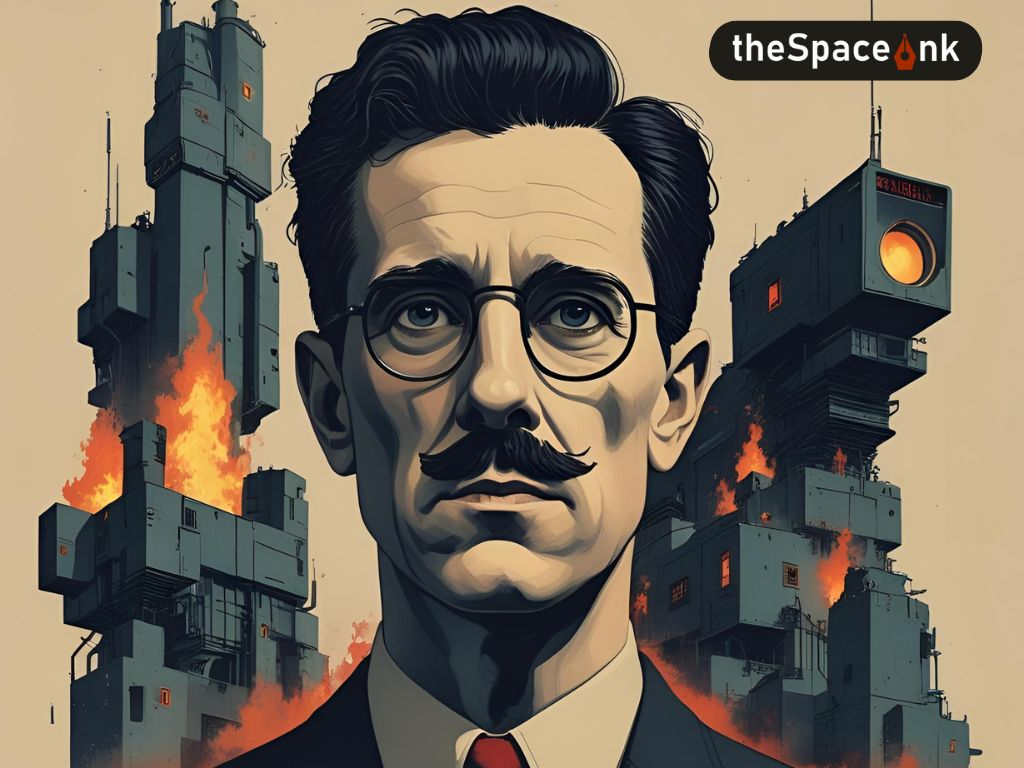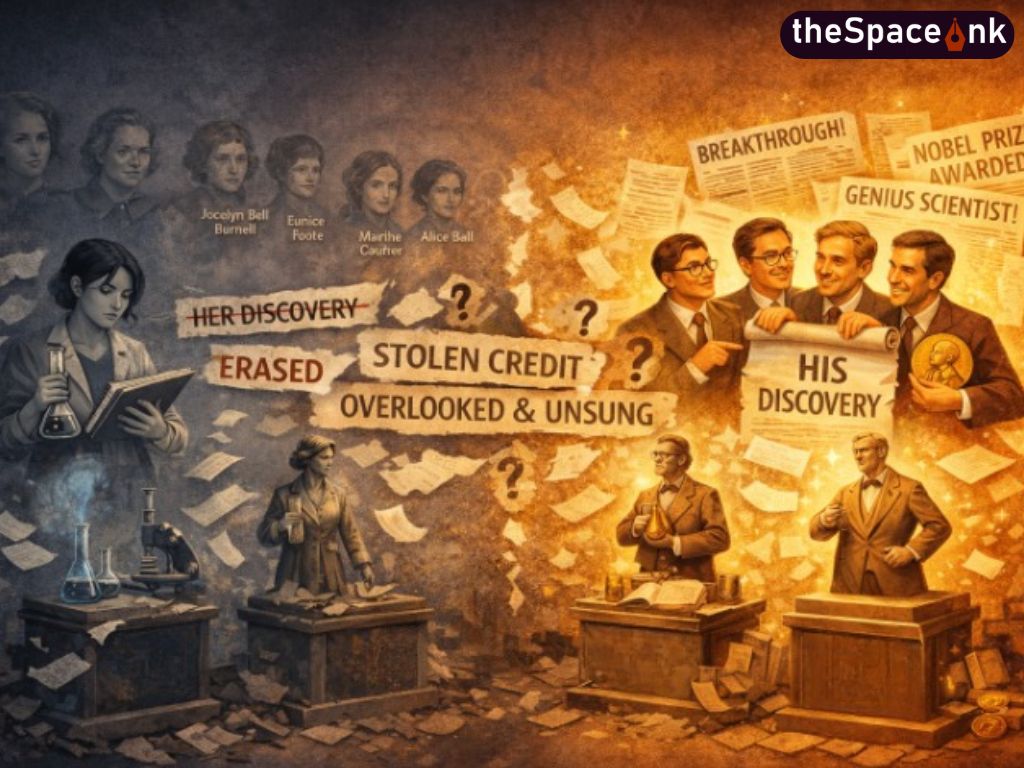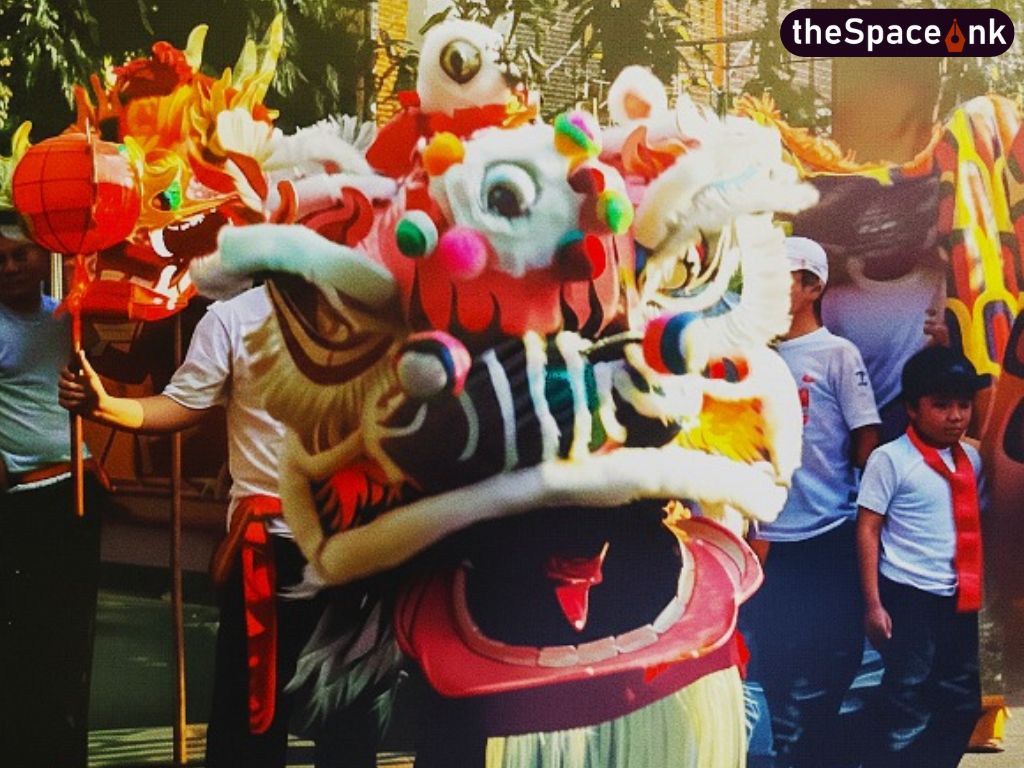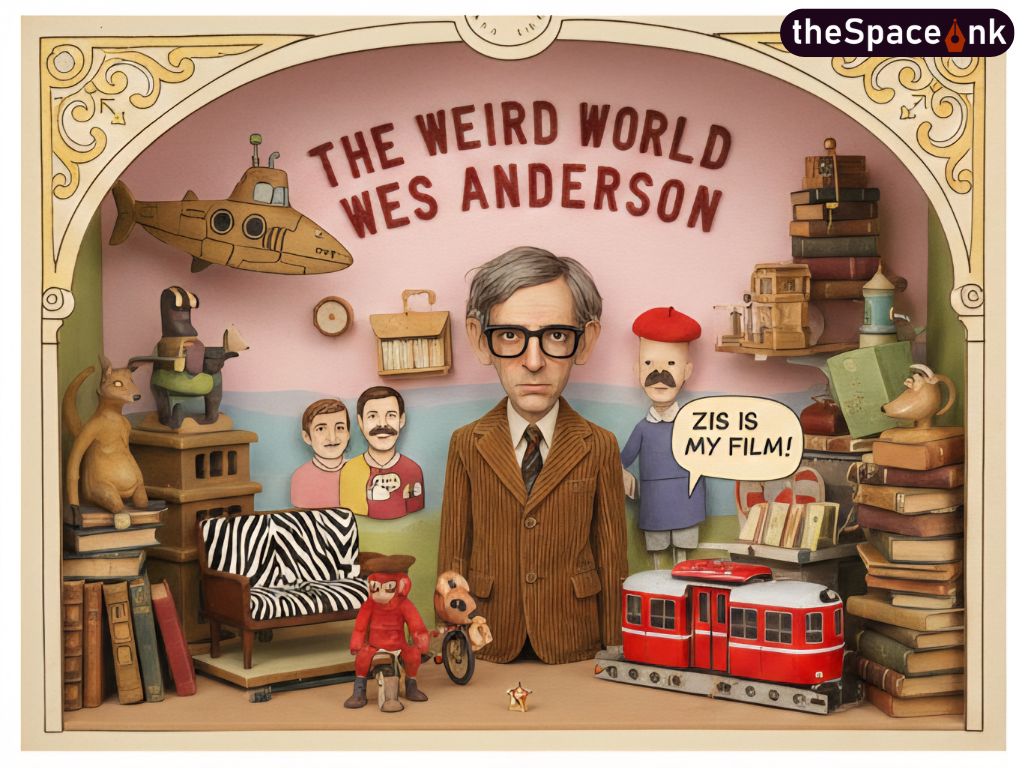(George Orwell)
As 1948 brought with it ominous tidings of the ‘Cold War’, British writer Eric Arthur Blair, better known by his nom de plume George Orwell, found himself again at odds with the USSR. Despite having already satirised the rise of socialism in Animal Farm, he felt inclined to take his critique of Stalin’s regime further. So Orwell conceived a new book—a dystopia in the vein of Yevgeny Zamyatin’s We, and in June 1949, 1984 was published. Tragically, Orwell did not live long to witness its impact. Just seven months later, he breathed his last, leaving behind a novel that would become one of the most influential works of the 20th century. (George Orwell)
Also Read: Detective Fiction Through the Ages
Dystopia is a subgenre of science fiction that paints a grim picture of the future to caution the present. 1984 fares admirably in this respect, affording us a glimpse of war-ravaged Earth divided into three superstates, Oceania, Eurasia, and East-Asia. Oceania consists of Airstrip One (formerly England), North and South America, Australia, and the southern part of Africa. Eurasia encompasses the entire Northern Europe and Russia, while East-Asia is made up of China, Korea, Japan, and other East Asian nations. The superstates are in perpetual strife, with allegiances and rivalries shifting suddenly and unpredictably. This constant flux creates a fragile and unstable balance of power among them. (George Orwell)

The setting of the novel is London, a city in Oceania. It is ruled by the ‘Party’, a political organization governing through a one-party system based on the ideology of ‘Ingsoc’ (English Socialism). The members of the ‘Outer Party’—obedient, middle-class citizens—keep the machinery of the state functioning, while the ‘Inner Party’ members reside at the true center of power. At the top of the Party’s hierarchy sits ‘Big Brother’, a semi-mythical figure surrounded by a strong cult of personality. (George Orwell)
“The Party’s widely advertised slogans—‘War is Peace’, ‘Freedom is Slavery’, and ‘Ignorance is Strength’—are wielded as tools by the ministries to exploit the masses.”
The citizens of Oceania are required to demonstrate unwavering loyalty to Big Brother. Those who oppose him or question the Party’s decisions are labelled ‘unpersons’ and swiftly erased from existence. The state apparatus of Oceania is nigh-omnipotent; it can arrest anyone at any moment on fabricated charges of sedition, and subject him to mental and physical tortures indefinitely. (George Orwell)

In Orwell’s Oceania, the government and the Party are synonymous, and the four ministries play a key role in maintaining the status quo. The Ministry of Truth controls the narrative of history; to ensure the sanctity of the Party’s version of events, it systematically alters facts, revises records, and, through Goebbels-like propaganda, replaces truth with falsehood. The Ministry of Peace keeps Oceania embroiled in pointless wars with alternately Eurasia and Eastasia. By keeping the populace focused on border conflicts, it diverts their attention away from internal issues like economic inequality and social deprivation. (George Orwell)
The Ministry of Plenty proclaims continuous improvement in the citizens’ standard of living, but in actuality, regulates the production and distribution of essential goods in such a manner that people’s basic needs are never fully met. The Ministry of Love is the worst of the lot, blatantly engaging in acts of violence and brainwashing to crush any form of dissent. The Party’s widely advertised slogans—‘War is Peace’, ‘Freedom is Slavery’, and ‘Ignorance is Strength’—are wielded as tools by the ministries to exploit the masses. (George Orwell)
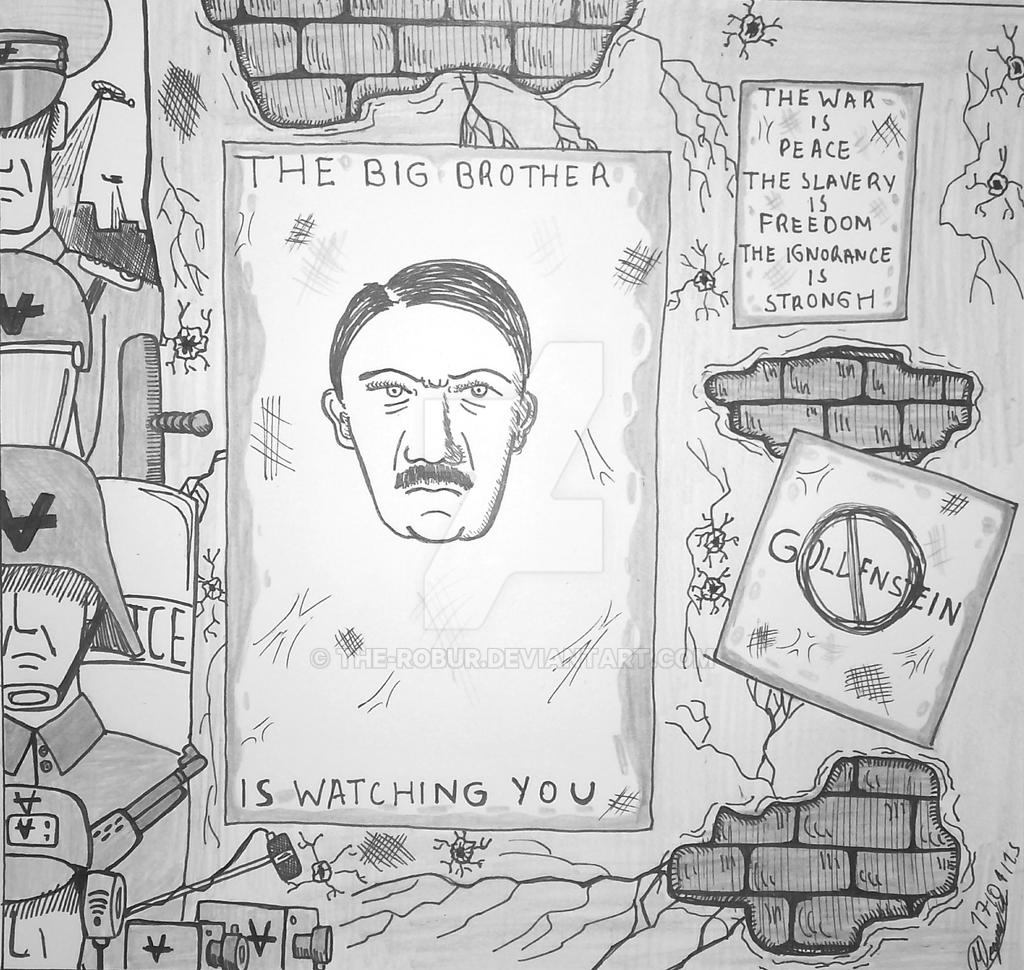
To keep its citizens subservient, Oceania employs methods of mind-control; most notably ‘Doublethink’ and ‘Newspeak’. The former compels people to hold contradictory thoughts simultaneously, effectively robbing them of their ability to think coherently and objectively. The latter, by truncating the vocabulary and altering word meanings, limits the range of the English language so that subversive ideas become impossible to articulate, let alone act upon. (George Orwell)
“75 years have passed since the demise of Orwell, yet his swan song remains as relevant as ever. Countries like China and North Korea, in front of our very eyes, have turned totalitarianism into reality, and in the process, trampled the civil rights of billions. “
Indulging in sexuality and other pleasures is frowned upon by the Party; its members are expected to keep their base urges in check at all times. The lowest stratum of the society, however, is deliberately kept in a state of stupor. The ‘proles’ (short for proletariats, the working people) are addicted to gin and pornography, and try their luck at lotteries in vain. Inebriated, devoid of the will to resist, they eventually drown in the mire of poverty and squalor. (George Orwell)
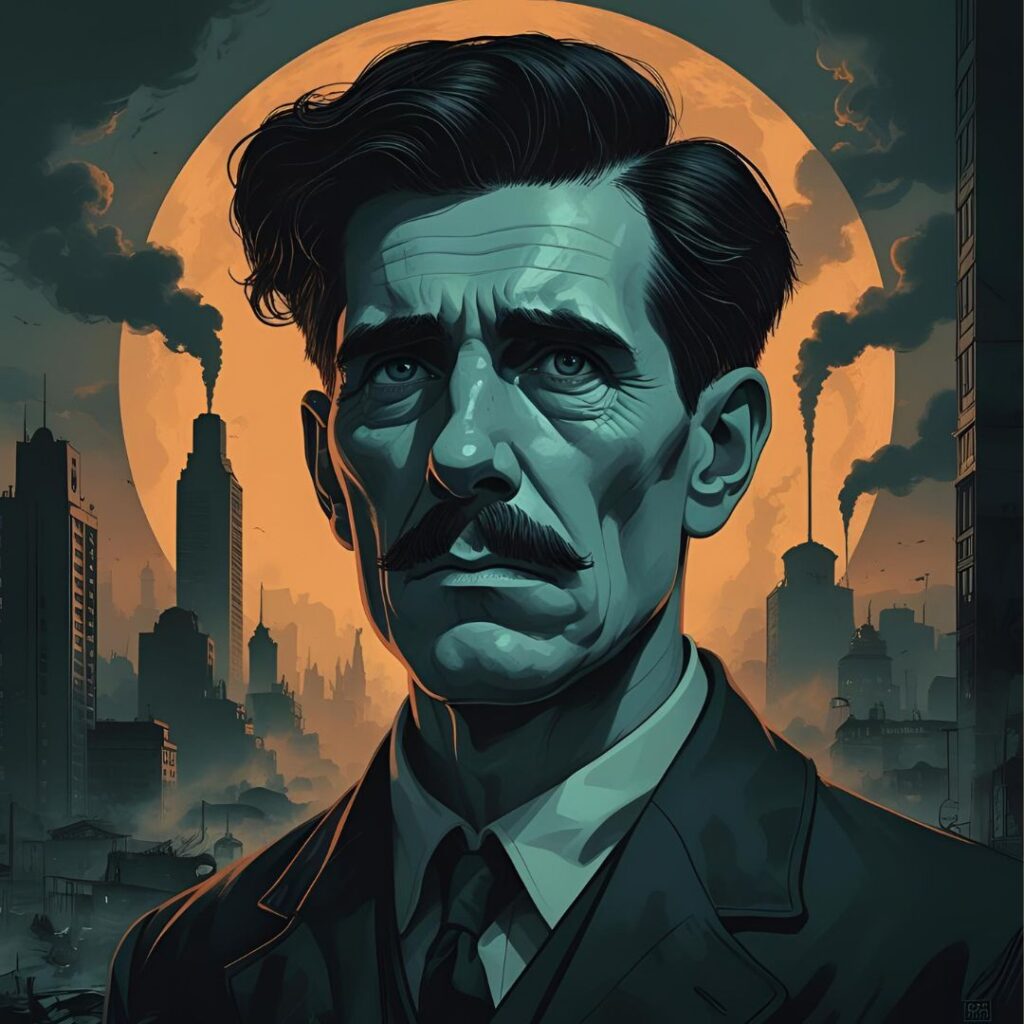
Another clever ploy of the Party is to organize the daily ‘Two-Minutes Hate’ sessions, where Emmanuel Goldstein (the so called ‘traitor to the state’ and leader of the rebels) and his followers are publicly vilified by frenzied citizens. The sessions act as a safety valve for the ruling class; keeping the crowd preoccupied with a fictitious target, and letting them vent their hysteric rage and frustrations towards it. (George Orwell)
In the late 19th century, English philosopher Jeremy Bentham came up with the concept of the ‘Panopticon’—a design for a prison in which a single guard, stationed at a specific position, could observe all the prisoners without them knowing when they were being watched. Orwell’s London resembles such a prison, where the state keeps its citizens under constant surveillance. It is mandatory to keep the television on at all times in every household, and through the two-way TV screens, the activities of the inhabitants are continuously monitored. (George Orwell)
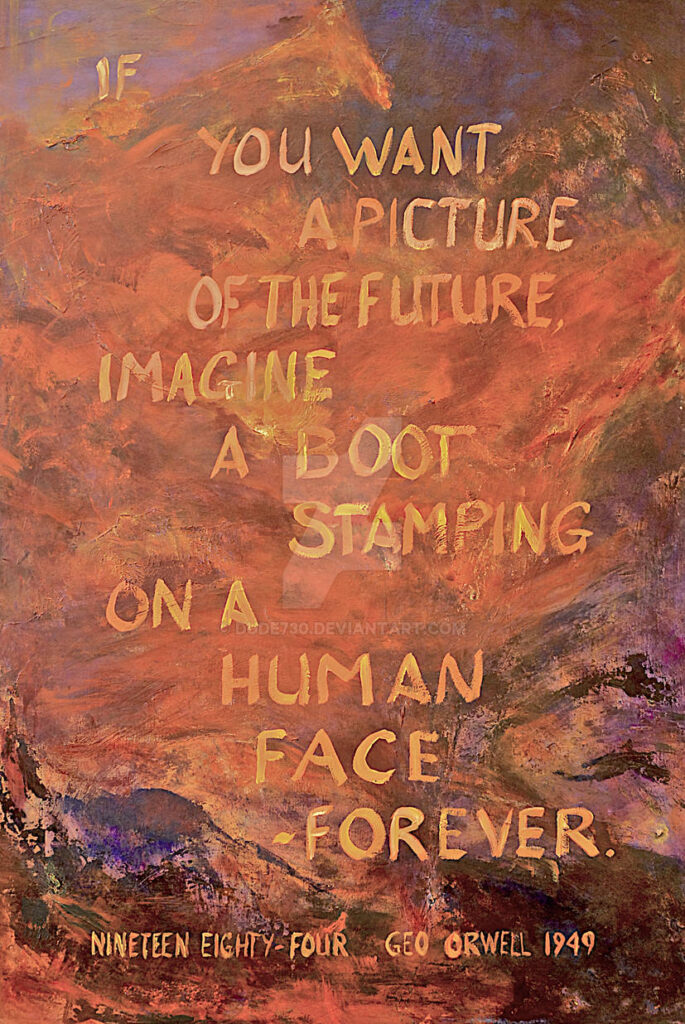
People live in fear of hidden cameras and microphones, as a careless remark or even a flicker of unchecked emotion can trigger a hostile response from the brutish ‘Thought Police’. Children are encouraged to spy on their parents; neighbors, colleagues and friends readily betray one another to the authorities. This atmosphere of uncertainty and mutual distrust strengthens the state’s grip on its citizens, reinforcing the chilling message—‘Big Brother is watching you!’ (George Orwell)
75 years have passed since the demise of Orwell, yet his swan song remains as relevant as ever. Countries like China and North Korea, in front of our very eyes, have turned totalitarianism into reality, and in the process, trampled the civil rights of billions. Even democratic governments have been known to grossly violate their citizens’ privacies under the pretext of national security. Today the watchdogs are everywhere, and technological advancements like cell phones, e-mails and social media have only strengthened their claws. (George Orwell)
The writing on the wall is clear; and if we are not vigilant, Orwell’s nightmare will soon catch up to us.
Image Courtesy: Illustrations created using AI tools, DEVIANT ART 25 , DEVIANT ART 25
Souvik Chakraborty, by profession a mid-level manager at Steel Authority of India Ltd., has, since his early days, been a voracious reader of both literary and popular fiction. Till date he has edited eight acclaimed anthologies in English, and a handful in Bengali as well. When not busy collating stories, Souvik likes to try his hand at penning poems and speculative yarns, and over the past few years, has contributed a number of short pieces to various renowned periodicals. He loves playing the guitar, and his hobbies include listening to rock music and watching thriller movies.


